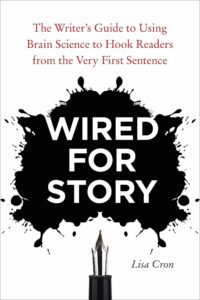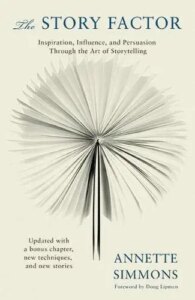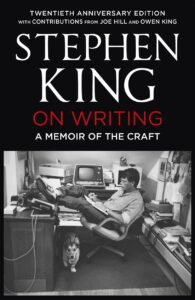We hear it being said all the time…
“The best writers are readers.”
And while I do believe there’s some truth to that, I think there’s something that’s even more true…
And that is…
That the best writers are, first and foremost, storytellers.
Whether you learn the art of storytelling through reading books, listening to audiobooks, or watching great cinema – it really doesn’t matter…
In this blog, we’re going to talk about WHY stories are such a critical component in good, persuasive writing. And then we’ll wrap it up with 5 amazing books that will help you master the art of storytelling and become an infinitely better writer.
Hey, Posse! What’s up? It’s Alex.
Today, we’re going to talk about one of my all-time favorite things…
STORYTELLING!
I wholeheartedly believe that sales (well, good sales anyway) and storytelling go hand-in-hand.
That you can’t have one without the other.
And that if you want to become a better copywriter, marketer, or business owner… then learning the art of storytelling is, hands down, the #1 skill you should learn.
Storytelling should be the backbone of your brand voice, the starting point of the emails, ads, and sales pages you write, and the secret sauce to your sales.
Which is why I teach in-depth storytelling formulas and strategies inside each and every one of my copywriting programs.
THAT’S how important storytelling is.
And I’m about to prove it to you.
But before we get into all of that…
If you’re new to the crew – welcome! On my blog, we talk all about writing, selling, branding, and more. So if you want to learn more about the modern marketing methods that are working TODAY then be sure to subscribe to my newsletter.
Now the inspiration for this video came a couple of weeks ago, when I was reading an interview in Forbes about the importance of storytelling in presentations.
The interview was with Jesse Scinto – who teaches The Critical Mind and Dynamics of Persuasion at Columbia University.
He made so many solid points about the importance of storytelling when it comes to putting together a persuasive presentation…
And it really got my wheels turning about how every single thing he was saying also applied copywriting, marketing, and honestly – persuasion in general.
In the article, Professor Scinto talks about the only two things a story needs to have…
- A complication.
- And a resolution.
Which is such a genius and straightforward way to think about it.
I mean we’re always overcomplicating things and boxing ourselves in by following EXACT story arcs that we were taught to follow…
Or trying to make sure we hit all the right twists and turns along the way…
Or trying to replicate other great stories we’ve read or heard…
But like Scinto pointed out:
Storytelling really is quite simple.
The first part of every good story needs to begin with a complication – “a character who gets into trouble somehow or is not having his/her needs met.”
And in terms of copywriting…
This translates into the big problem and core pain points your audience is experiencing…
And as your story progresses, “Your character strives, looks for a solution, tries different things, digs deep, finds courage within and then comes to a resolution.”
Similarly in copywriting, you want your story to transition from the pain and problem…
Into the solution or resolution that you’re offering them.
And of course, there are plenty of psychological triggers, formulas, and open loops that you should include along the way in order to seamlessly connect the dots and keep people engaged…
And that’s the type of stuff I teach you inside my copywriting courses.
But storytelling so so SO important when it comes to persuasive marketing.
Why? Well it’s simple really…
Humans like stories.
We’re hardwired over thousands of years of evolution to pay attention to them.
Long before we learned how to write, stories provided us with purpose, meaning and a sense of community and personal identity.
They helped us make sense of the world…
And pass on important lessons…
They were how we related to one another and how we coped through stressful times and uncertainties.
We’ve been bred to pay attention to and believe in stories.
Remember – you can debate facts, you can disagree with opinions, but you can never argue with a story!
And the more specific your story is when it comes to descriptive feelings and experiences, the more relatable it is!
So when you utilize storytelling in your marketing…
You’re using a form of persuasion that comes naturally to the human brain.
Which is pretty damn cool, right?
So now that you know WHY mastering the art of storytelling is so important as a digital marketer…
Now, let’s get right into the 5 books you should read to improve your storytelling skills.
#1 – The Storytelling Animal: How Stories Make Us Human by Jonathan Gottschall

This is a great one for all my skeptics out there…
Because it breaks down the importance of storytelling from the perspective of the latest research in neuroscience, psychology, and evolutionary biology.
It’s fascinating the way Gottschall explains the way stories have evolved as we have evolved as humans.
The way stories have helped us navigate problems.
The way stories have literally shaped who we are and how stories can, ultimately, help us change the world.
#2 – Wired for Story by Lisa Cron

This is another great book that breaks down the science behind storytelling, but I love this one because Lisa really breaks down what’s happening in the brain during storytelling…
From what the brain actually craves in a good story…
To what keeps them transfixed…
And she reveals “cognitive secrets” that you can apply in your own storytelling that will help you captivate your audience from beginning to end.
She also includes plenty of examples from novels, screenplays, and short stories – so you can really see how each element of storytelling corresponds to specific brain activity.
#3 – The Story Factor: Inspiration, Influence, and Persuasion through the Art of Storytelling by Annette Simmons and Doug Lipman

Whether you’re trying to make a sale…
Or trying to convince your partner to take out the trash…
If you know how to utilize the art of storytelling, then you can persuade, motivate and inspire people in every aspect of your life.
From your business to your personal life, and every interaction in between.
This book teaches you how storytelling is the oldest (and most powerful) form of influence – with over one hundred examples of effective storytelling…
#4 – On Writing: A Memoir of the Craft by Stephen King

Arguably one of the most successful fiction authors of our time, Stephan King’s memoir is honestly a must-read for anyone that wants to learn the art of storytelling – and writing in general.
This one is a bit different from the others on this list, because it is in fact a memoir of King’s own writing journey…
But he does a great job of breaking down his own personal process from writing – with advice on description, authentic dialogue, and the basic tools every writer should know and utilize.
#5 – Made to Stick: Why Some Ideas Survive and Others Die by Chip Heath and Dan Heath

What’s the difference between ideas that fly or die?
In Made to Stick, Chip and Dan Heath break down the principles behind every winning idea.
And most importantly, how you can use these principles in your own storytelling and messaging to be infinitely more persuasive and influential.
Bonus Storytelling Tip
And my favorite one of all…
Read fiction!
WHATEVER type of fiction you like…
Be it about wizards and warlocks, crime and murder mystery, or love and romance. If a book captivates you, enthralls you, sucks you in and keeps you turning pages…
Then it must be a pretty good story and you will learn something about writing simply by reading it – whether you realize it or not.
Remember, not everything you do has to be “educational” in order to be beneficial…
What book are you reading next?
Comment below and let me know and until next time, I’m Alex—ciao for now!


